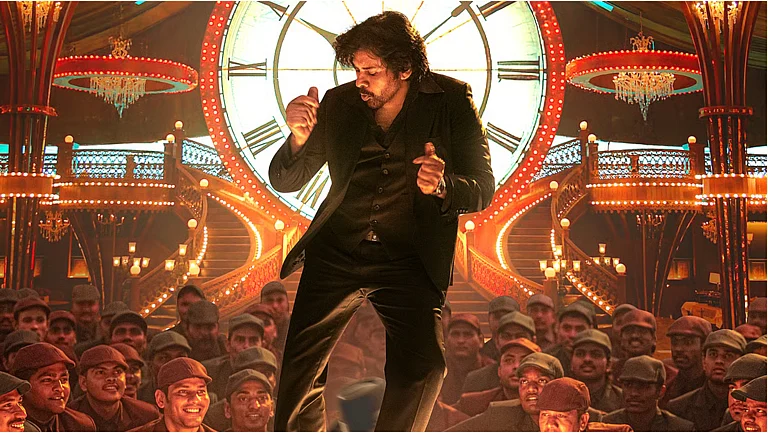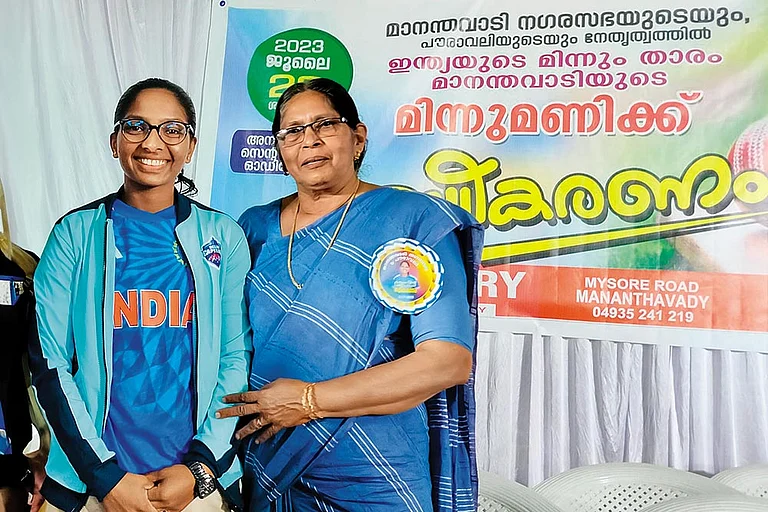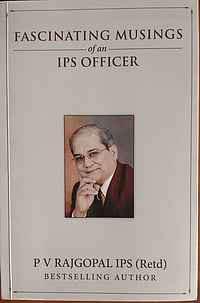Mani Shankar Aiyar, who was the late Rajiv Gandhi (RG)’s trusted aide for six years, ends his present book with a poignant note: “… my life in politics rose in spurts to its highs and then spluttered out to the point where I find myself sidelined by Rajiv Gandhi’s heirs and marginalised even in the party”.
That did not prevent Aiyar from working with profound sincerity over three decades to find an answer to RG’s question to him, soon after his electoral defeat in January 1990: “People say I am arrogant. Am I?” This long journey to find an answer led him to evaluate most of RG’s policy decisions and their reverberations. This, he thought, would be the fitting tribute to “India’s Most Misunderstood Prime Minister”.
Normally memoirs of all such high-level aides are replete with instances on how they had influenced the decisions taken by their political bosses. Not so in this case-- Aiyar cautions his readers that RG had kept his aides “in watertight compartments of sectoral responsibility” and “woe to him or her who attempted to cross into zones not their own”. He frankly admits that he “was in no sense an ‘insider’ to RG’s policy decisions”.
Aiyar provides convincing answers with evidence in his events- filled treatise. He re-examines how RG tackled different situations during his 5-year tenure as Prime Minister and presents justification for each policy decision. The list covers six successful domestic security accords which boosted RG’s image, six internal controversies which darkened his reputation, five foreign policy initiatives, especially opening out to China, which heightened his international stature and several domestic programmes like technology missions, Panchayati Raj et al.
RG was transparent and trusting, assuming that “others shared his values”. “Not having striven for power, he did not quite understand what made others power-hungry”. He did the right thing for the country even if it went against his political party’s interests. He delegated responsibility to others and expected them not to violate his trust. Their betrayal gave the impression that RG appeared “so often to not have been in control of what is happening around him and, in his name.”
Aiyer examines RG’s successful “accords” first --the Punjab, Assam, Mizoram, Rajiv-Farooq, J&K and Darjeeling-- which calmed pockets of domestic turbulence to varying degrees, which The New York Times August 4, 1985, described as “proving the essential unity of India”. He then turns his attention to “The Controversies” (Shah Bano, Babri Masjid, Operation Brasstacks, IPKF and Bofors), devoting nearly 100 pages, where, as is his wont, he does not mince his words while analysing the roles of many of RG’s friends and colleagues who let him down.
Aiyer directs his rapier sharp prose towards V.P. Singh, Jagmohan, Arun Nehru, Arif Mohammed Khan, Arun Sigh and Gen. K. Sundarji for deviations while managing these problems. He quotes Daniel Latifi Supreme court judgment on 28 September 2001to justify RG’s stand on Shah Bano case and Delhi High court 4 February 2004 verdict (Justice J.D. Kapoor) on Bofors (“not a scintilla of evidence”), confirmed by the Supreme Court on 2 November 2018. By that time, RG was already assassinated. “Yet nothing so damaged Rajiv Gandhi as Bofors”.
However, Aiyer blames RG for not agreeing to his aides’ advice or even consulting them which resulted in severe controversies: One was the sacking of Foreign Secretary A.P. Venkateswaran on 27 January 1987 during a presser to discuss “Operation Brasstacks”, despite his principal secretary’s advice. In this Aiyer became the victim as Venkateswaran thought that he was responsible for his dismissal. The second was agreeing to position IPKF as a buffer from Tamil insurgents and Sri Lankan Army when President Jayawardene “drew RG aside into an adjacent room”. “He acted decisively-and took on his chin the consequences”.
In 1988, I had a similar experience of RG discarding conventional protocol, while I was the Chief Staff officer of our External Intelligence Chief. PM wanted to check the progress of an extremely sensitive external intelligence operation. In the absence of my chief, I reported at PM Residence with my maps and charts. I was stunned when I was ushered in first despite my status as a junior Joint Secretary, over the waiting Minister of State for External Affairs and Foreign Secretary.
I conclude with Aiyer’s words: “What made him a good man-compassionate, diligent, honest, upright, unruffled, bold, truthful-was what felled him as PM”. What he lacked was “the guile, deviousness and deceit which may have helped him become a more long-lasting PM”.
THE RAJIV I KNEW : AND WHY HE WAS INDIA’S MOST MISUNDERSTOOD PRIME MINISTER BY MANI SHANKAR AIYAR (JUGGERNAUT BOOKS 2024)
Vappala Balachandran is a former Special Secretary, Cabinet Secretariat

























